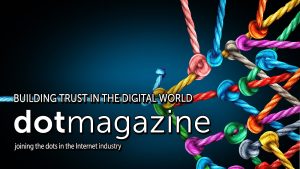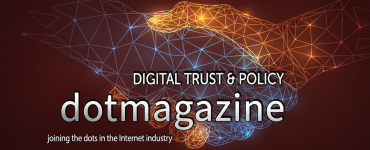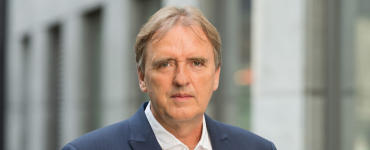In today’s rapidly evolving digital landscape, trust is crucial for building resilient and secure digital ecosystems, given the widespread availability of information, the prevalence of digital transactions, and the profound influence of social media. In this edition of the eco Association’s dotmagazine, we present six insightful articles from industry leaders on how to foster trust and security in the digital world. Read about their valuable perspectives and strategies for shaping a safer and more resilient digital ecosystem.
Alexander Rabe, Managing Director of the eco Association, shares his insights on the transformative power of emerging technologies like AI and quantum computing. He argues that digital literacy must become an integral part of education to enable the safe and critical use of digital information. Alexander emphasises that a strong digital infrastructure is essential for maximising the potential of AI and other technologies, ultimately paving the way for a digitally sustainable and secure data ecosystem.
Trust in such an ecosystem is bolstered by a legal framework that sets clear and uncompromising standards. Tatjana Hein from the eco Association examines the EU’s new Cyber Resilience Act and its potential impact on IoT manufacturers. She delves into how the legislation aims to strengthen cybersecurity rules for hardware and software products, to create a clear labelling and compliance system, and to increase the overall security of IoT devices and connected Internet infrastructure, consequently fostering trust.
But what does trust entail in our overall digital world? Simone Catania from InterNetX discusses the core elements of digital trust: encryption, identity, and integrity. As security threats to companies and individuals continue to rise, Catania emphasises the importance of implementing robust security practices to ensure secure transactions and protect online interactions. By prioritising digital trust, organisations can maintain customer loyalty and safeguard their brand reputation. Catania also highlights the need to balance innovation with global standards, ultimately creating a strong and resilient digital infrastructure.
An excellent example of how this works in practice can be seen in the field of email. Julia Janssen-Holldiek, Director of the Certified Senders Alliance (CSA), reviews the 2024 CSA Summit and underscores the vital role of trust in tackling abuse and spam and shaping the future of digital communication. As email continues to evolve, she notes how all of those participating at the event embrace transparency, innovation and adaptation to ensure longevity and effectiveness. By prioritising the interests of email recipients and fostering trust, organisations can play a pivotal role in cultivating a more secure and sustainable digital ecosystem. As all of the 180 attendees at the CSA Summit agreed: “If you want to go fast, go alone. If you want to go far, go together.”
As is therefore clearly evident, trust in digital communication therefore necessitates secure email. Kristina Pohl from the German Federal Office for Information Security (BSI) addresses the importance of encryption and authentication in email. She shares insights from the BSI’s Technical Guidelines for Secure Email Transport and Email Authentication, which enable email service providers to enhance security measures without additional user effort. To ensure compatibility and effectiveness, providers must coordinate their security efforts, ultimately fostering a more secure digital environment for businesses, governments and individuals alike.
How successful such coordination can be is exemplified in the cybersecurity incident response field. Silvio Oertli from Switch-CERT reflects on the significant strides made by the TF-CSIRT (Task Force Cybersecurity and Incident Response Teams) Community in fostering collaboration and improving cyber resilience worldwide over the last few decades. He emphasises the importance of trust-building mechanisms and knowledge-sharing in incident response, especially in today’s climate of prevalent cyber threats.
Trust plays a crucial role in shaping the future of our digital world in the realm of digital infrastructure, data ecosystems, email and cybersecurity. By promoting collaboration and establishing and maintaining strong security standards, we can create a more resilient and trustworthy digital environment for future generations.
Read the full issue at www.dotmagazine.online.




